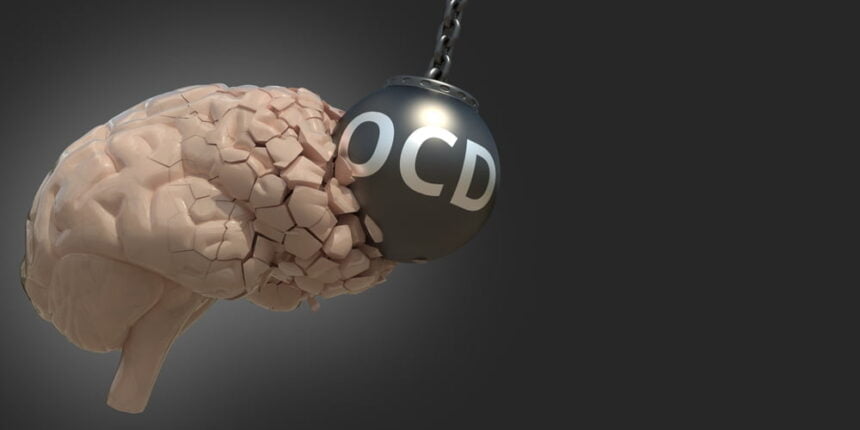Obsessive compulsive disorder (OCD) is a frustrating mental illness that affects 2.5 million American adults. OCD can manifest in many ways. One of the most serious forms is harm OCD.
People with harm OCD need to seek treatment. This is one of the many serious problems that illustrates how therapy literally saves lives.
What is Harm OCD?
Everyone has violent thoughts from time to time; it’s part of human nature. If someone steals your parking spot, for example, you’ll imagine slashing their tires and smashing their windows. If someone wolfs down that last donut you were eyeing at the bakery, you’ll mutter something about them choking on it under their breath. Yet no matter what violent fantasy you have, it’ll vanish almost as soon as it pops up.
But for someone suffering from harm OCD, it’s a different story.
The symptoms of harm OCD can be agonizing, as can its treatment. But before we get into that, let’s first understand what harm OCD is and clear up the unfortunate misconceptions surrounding it.
What is Harm OCD?
Harm OCD is a subtype of Obsessive Compulsive Disorder. It can be a very serious mental illness if it is not kept under control.
All forms of OCD involve repetitive, distressing, intrusive thoughts (obsessions) and uncontrollable, ritualistic behavior to soothe those thoughts (compulsions).
Hence, harm OCD is characterized by intrusive thoughts, images, or urges to harm oneself or others.
A common and problematic assumption is that people with harm OCD are dangerous and violent. Ironically, this misconception is held most strongly by someone with harm OCD themselves.
However, people with harm OCD don’t necessarily act out on their violent thoughts, but they can’t shake them off either. At the end of the day, their obsessions and compulsions aren’t about enacting violence but avoiding it.
In other words, harm OCD is a fear of inflicting harm on others and yourself.
Say you’re dicing vegetables in the kitchen when your roommate strolls in. Out of nowhere, you picture slitting their throat with your knife (as one does). But even though you won’t actually commit murder, that nagging OCD voice in your head will convince you the mere thought of injuring your friend renders you a violent person.
You’ll think to yourself: why did I just picture hurting my roommate? Maybe it’s because I do want to hurt them. I need to get rid of all knives in the house.
Hence, harm OCD forces a person to ascribe more meaning to a one-off violent thought than necessary.
What Causes Harm OCD?
Despite the accelerated advancements in OCD treatments over the past few decades, mental health experts are still unsure about the exact cause of harm OCD.
OCD is an idiopathic condition, meaning there is no known definite cause for its emergence. However, there are countless theories, including:
- Cognitive behavioral theory
- Learned avoidance theory
- Neurobiological illness
- Chemical imbalances
- Genetic factors
- Environmental factors (stress or trauma)
- Childhood trauma or experiences
The cognitive model of OCD is the most widely-accepted theory of OCD, mainly because of the groundbreaking success of Cognitive Behavioral Therapy (CBT) for OCD treatment in the 1960s.
This theory suggests that a person with OCD has impaired cognition, which is the process of acquiring and interpreting knowledge through one’s thoughts, experiences, and senses. Differences in cognition between people with and without OCD mark differences in processing, interpreting, and reacting to commonly-occurring intrusive thoughts.
Symptoms of Harm OCD
The specific thoughts and urges of people with harm OCD differ from person to person. However, these symptoms can be broadly categorized as follows.
Fear of harming others
If you have harm OCD, you’ll constantly worry about inflicting harm on others. Even if you have no past instances of enacting violence, you won’t trust yourself around other people. This self-doubt emerges from uncontrollable intrusive thoughts revolving around violence or inflicting harm on others.
As a result of these intrusive thoughts, you’ll end up taking some extreme precautionary measures. For example, you might isolate yourself from friends and family. Or, you might clear your house from anything you can potentially use as a weapon.
Moreover, you will constantly seek reassurance from others that you didn’t harm them. Even if there are no signs that you hurt them, you’ll create false memories about doing just that.
Fear of harming self
In addition to other people, you will fear harming yourself. Once again, this fear emerges from unwanted thoughts and doubting your intentions, leading to avoidance behavior.
For example, say you go to a swimming pool. As you sit by the deep end, innocently dipping your toes in the water, you inadvertently think, “what if I drown myself,” followed by “am I suicidal? I must be; otherwise, why would I have this thought?”
From then on, you’ll avoid going to the pool altogether. Not only that, but you might develop a fear of bathing or showering lest you enter your watery grave.
Self-condemnation
The major difference between someone who suffers from harm OCD and someone who actually intends harm is self-condemnation.
Generally speaking, the latter would rarely feel remorse or guilt for causing harm, let alone thinking about it. On the other hand, someone with harm OCD will constantly reprimand themselves for having a malicious thought toward others or themselves, even if it’s a one-off.
They’ll feel they need to be punished or locked up out of fear of inflicting harm.
How Can You Treat Harm OCD?
Harm OCD can be extremely debilitating to all aspects of your life. On top of consistent, unwanted, violent thoughts, you might end up isolating yourself from friends, family, and the outside world.
But with the appropriate treatment, you won’t be a slave to those intrusive thoughts any longer.
Treatment for harm OCD comprises Exposure and Response Prevention Therapy (ERP)— a type of CBT. ERP involves supervised exposure to various OCD triggers, with your therapist guiding you through your intrusive thoughts and urges.
Moreover, medication for OCD is a secondary treatment option, especially for people experiencing depression or anxiety alongside OCD.
While treatment rates are generally successful, there are always chances of relapsing. Hence, you can treat harm OCD but not cure it.
Conclusion
Harm OCD is a particularly vicious form of OCD involving unwanted thoughts, images, or urges to harm others or yourself.
It is important to note that having harm OCD does not make one a dangerous or violent person. On the contrary, someone with harm OCD goes out of their way to avoid inflicting harm. They constantly fixate on the smallest sign of harmful behavior on their part.
Fortunately, though, you can effectively treat your harm OCD through a combination of Cognitive Behavioral Therapy and medication.









